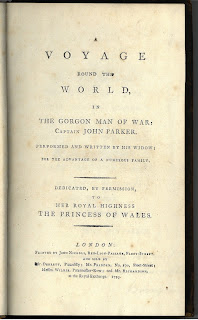 "On Friday, June 24, Mr. Dickey started his fishing trip. Others, not part of the fishing party, were on hand with missions to accomplish prior to the 'informal lunch.' And then the guest arrived..."
"On Friday, June 24, Mr. Dickey started his fishing trip. Others, not part of the fishing party, were on hand with missions to accomplish prior to the 'informal lunch.' And then the guest arrived..."This is the folksy start to a photo album titled "A Friend Came to Lunch." Assembled by Edward C. Lathem and the Stinehour Press, it commemorates Dwight D. Eisenhower's visit to John Sloan Dickey's annual fishing party at the Second College Grant in 1954.
The pictures are priceless. Ike donned a DOC jacket, while various Dartmouth administrators decked themselves out for a weekend of fishing. In some pictures it is hard to distinguish Dickey from Eisenhower. After all the hoopla--understated as it was--"Quiet returns to the Dartmouth College Grant."
To see it ask for D.C. History LD1446 1955 .D378.




